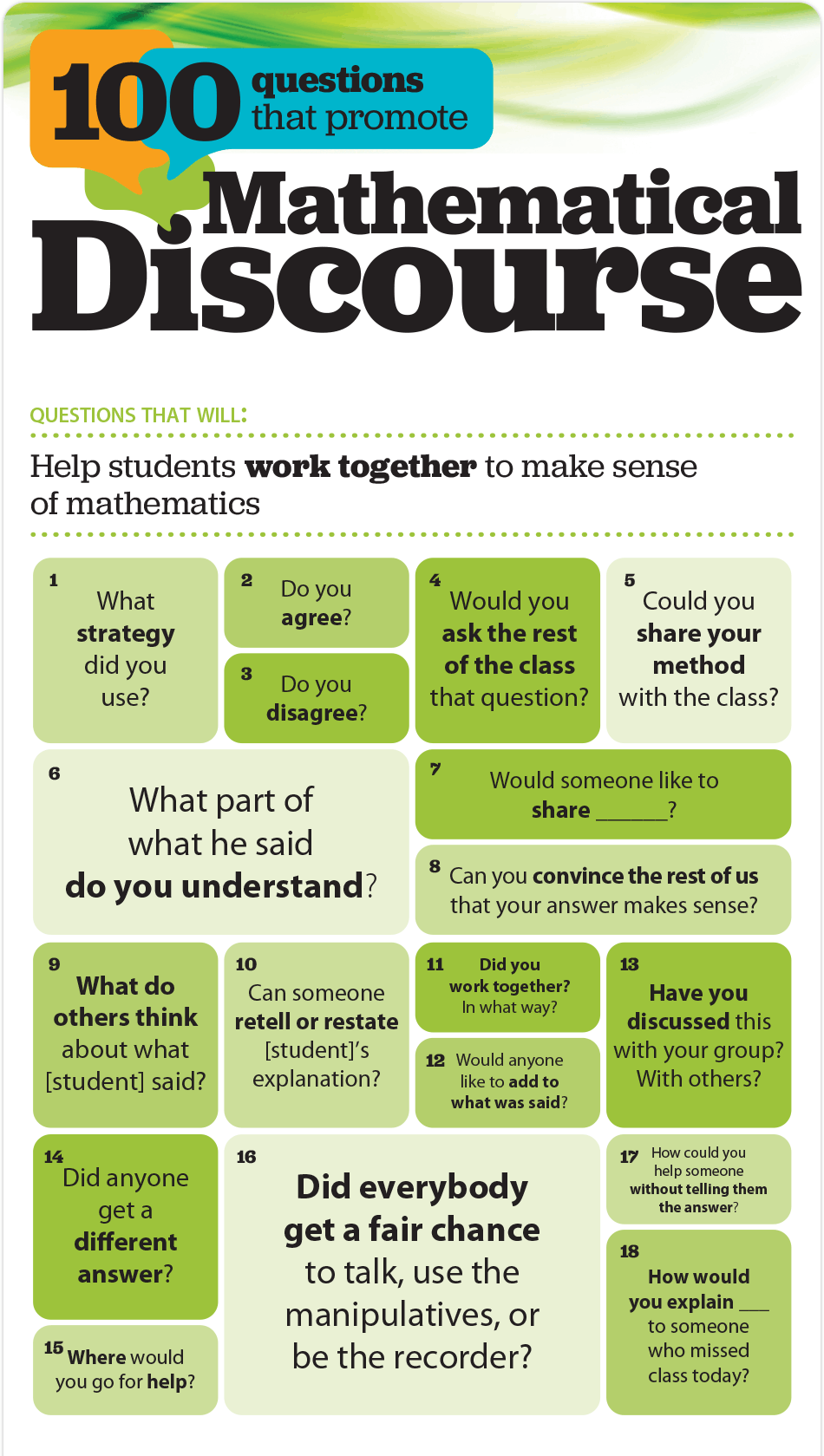I was recently introduced to a fantastic list of 100 questions that teachers can ask in mathematics class that will encourage students to think and reason and share their thoughts with each other. A portion of these 100 questions are in the graphics in this post. The rest can be found here.
The questions are separated into categories that help students to:
- Work together to make sense of mathematics.
- Rely more on themselves to determine if something is mathematically correct.
- To reason mathematically.
- Evaluate their own processes and engage in productive peer interaction.
- Gain a better understanding with problem comprehension.
- Learn to conjecture, invent, and solve problems.
- Learn to connect mathematics, its ideas, and its applications.
- Persevere.
- Focus on the mathematics from activities.

Every parent that has ever received the unimaginative response of "Fine." to the question, "How was school today." understands the frustration of trying encourage a dialogue with young people who are either unable or unwilling to do so. Teachers face this dilemma every day. Except, for teachers, their are tasked with making sure that the students are actually learning the content that they are teaching. Teachers don't have the luxury of dismissing an uninformed, mono-syllabic response. Hence teachers do their best to use strategies that will encourage students to share their thinking. These questions help teachers to achieve this goal.
Here is a sampling of some of these great, discourse-encouraging questions:
How would you explain _________ to someone who missed class today?
How did you reach that conclusion?
Can you think of a case where that wouldn't work?
Could you reword that in simpler terms?
How is your solution method the same as or different from (student)'s method?
How does this relate to ____________ ?
These questions help students to understand that mathematics is not just a bunch of rules that lead to a single number answer. We want students who are able to understand the reasoning behind the rules. We want students to think and reason and discuss and struggle and fail and try again. We want students to have strategies for finding solutions beyond just asking the teacher. We want students to learn from each other, to recall past lessons, and to know how to check their own work.
These questions are a great resource to our teachers. When students are thinking, students are learning.



No comments:
Post a Comment